The commuting life
How commute lengths, types & vibes affect our days
Both by luck and choice, I have a short commute of just a few miles from my home to my office.
I say luck, because, of course we don’t always have control over where our employer is or whether we can access a job nearby. And as always, privilege plays a role here too: I can afford to live near where I work. My chosen career doesn’t require me to move to somewhere more expensive either.
As for the choice?
Well, I’ve chosen to live where I work, and I’ve chosen to work where I live. I like it. It feels like community. It feels connected to place. I understand the appeal of choosing differently (if you have a choice at all): preference for rural or suburban living isn’t always matched well with employment centers, protecting more anonymity by living in a different community from where you work, etc. There are reasons that, even when given the opportunity, you might choose to live in one place and work in another. I like being an Albany gal, and I like being so embedded in my place.
The longer the commute, the less time available for everything else
One aspect I honestly hadn’t given much thought to is what we can gain by shortening our commutes.
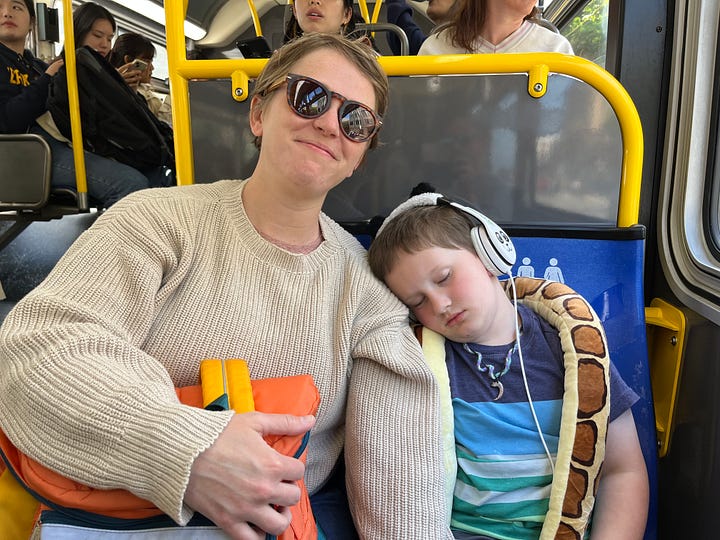

Of all places, this realization struck me in the comment section of one
’s posts. The author (& Substack writer) shared this:Not that many people have actually read “Bowling Alone” (it’s pretty dense on the statistics), but one fact from it that’s always stuck with me is that for every 10 minutes of added commuting time, civic engagement decreases by something like 10%. I’m sure that applies to friendships, too.
The longer the commute, the less civic engagement. I’d guess that it corresponds to another observation that many others have made: the more hours you spend at work, the fewer hours you spend on civic engagement, and probably the less energy you have for it too.
It makes sense, of course.
The time spent commuting is time you don’t have for other things. If your commute adds hours to your day, it’s harder to imagine attending that neighborhood meeting or signing up for a weekly volunteer shift. In fact, it’s hard to even imagine just having the energy to dive into a hobby at night, or to make plans with friends or to… well do much of anything except maybe crash on the couch and scroll your phone.
But the type of commute matters too
The quickest way for me to get to work is to drive, which usually takes anywhere from 10 to 15 minutes. The next quickest is probably the bus, which I can hop on one block away from my house and hop off about two blocks away from my office, and that ride typically takes between 15 and 18 minutes. Next comes riding my bike, which also takes around 15 minutes to get there and maybe a little longer on the way back. I have a pedal assist e-bike1 but the hills and traffic still slow me down a little in the evening. Every once and awhile, I’ve taken the bus in the morning and then ran home, with the afternoon part taking around 25 minutes depending on the route I choose.
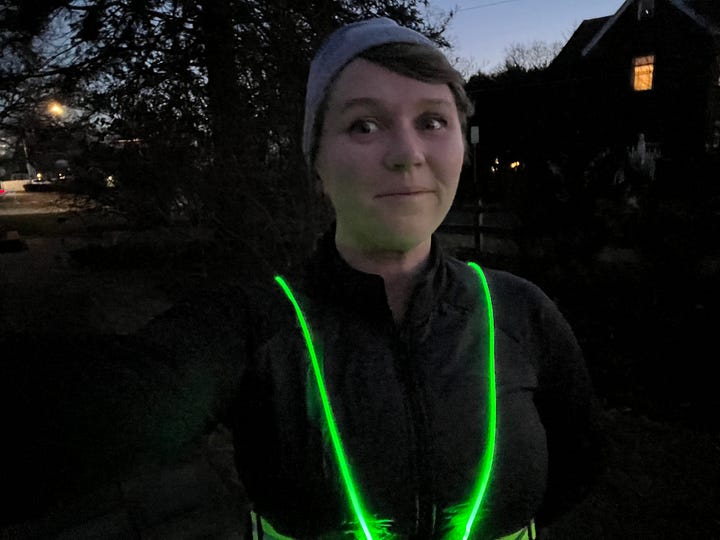
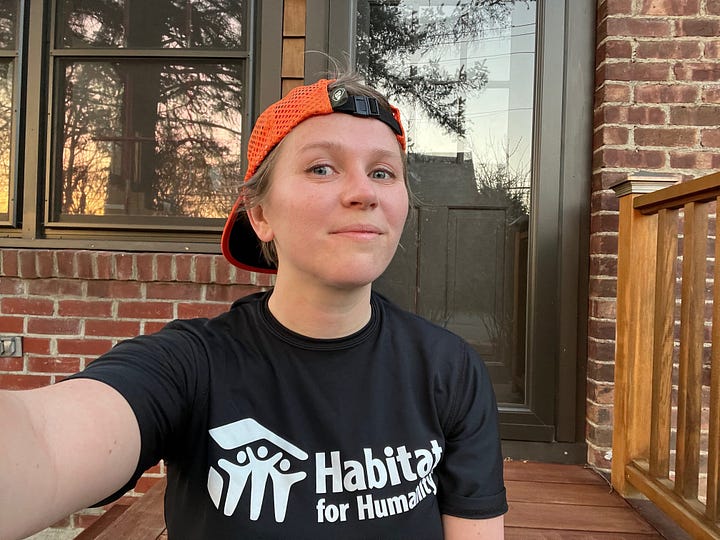
What a joy to have so many ways to get around. And what a perk of a small city to have so many options that are quick. I have a lot of commuting choices depending on the weather, my schedule and my energy level.
That’s not true for everyone, of course — there are still routes that require one or more bus transfers, there are still bus routes that only come once every 30 minutes or more, there are still commute burdens for people who live within a few miles of their jobs.
I feel most alive and real and part of something when I commute by any other mode that isn’t driving. Driving is convenient — I have free, easy parking both at home and my office — but it’s so insulating. I feel like a zombie just transferring myself from an office chair into a metal box on wheels and then onto my couch. I’ll be clear: most days, I drive to work. I’m slowly, gently replacing car trips with other modes of transportation, but I drive a lot.
Lately, I’ve enjoyed riding the bus in to work and then taking a long walk home, which usually takes just under an hour. I know, I know, all of this blather and now I am purposefully extending my commute time?!?! Yup, but I’m also improving the quality. I look inside store windows, I smile at people on the sidewalk, I try to will into existence a small bakery where I could pick up a nice baguette for dinner, I listen to podcasts, I listen to nothing, I gather my thoughts, I empty my thoughts, I get some fresh air and movement and remember that I am a real person living in a real place. Not just an overworked brain, not just my feelings, not just someone responding to emails and posting on the internet. I’m a person, like millions of people around the world, walking home.
Someone I know made the commitment to only work at places that she could walk to from her home! Unexpected, beautiful, I love it. Living in the same small city where I work gives me options. It gives me back time.
What’s your commute like?! Do you love it or hate it? Wow, I didn’t even talk about remote work here, so I guess that’s a whole other side of the commuting discussion.
Elsewhere recently:
I was interviewed for the final 2023 episode of Troy Talk Today about Habitat for Humanity’s investment of American Rescue Plan Act (ARPA) award into building four new, energy efficient homes in North Central Troy.
I’m speaking about increasing the housing supply at the Elevate Albany: 2024 State of the Region Summit on Wednesday, January 31.
DO YOU WANT AN ENTIRE POST ABOUT E-BIKES, Y/N?




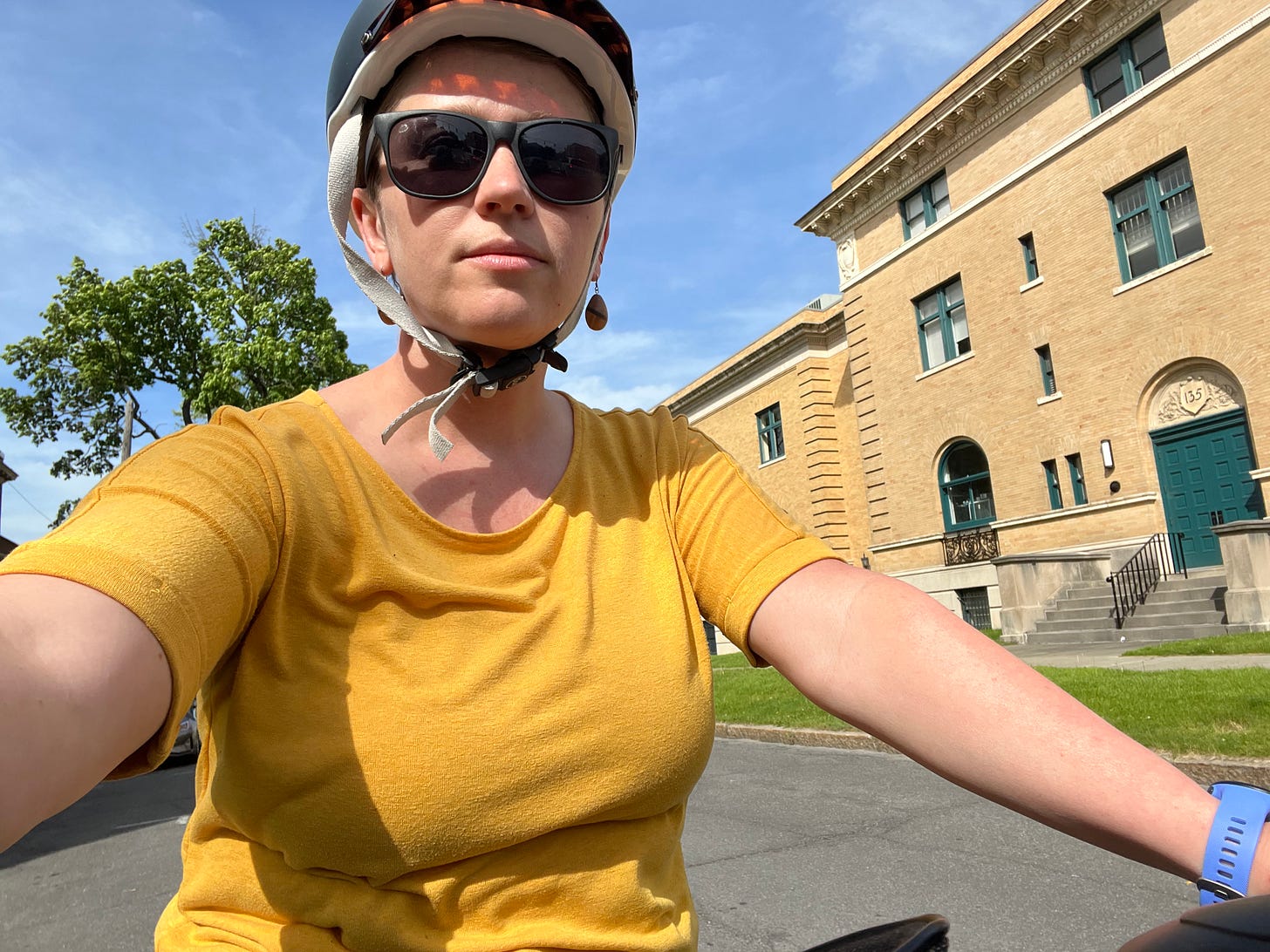
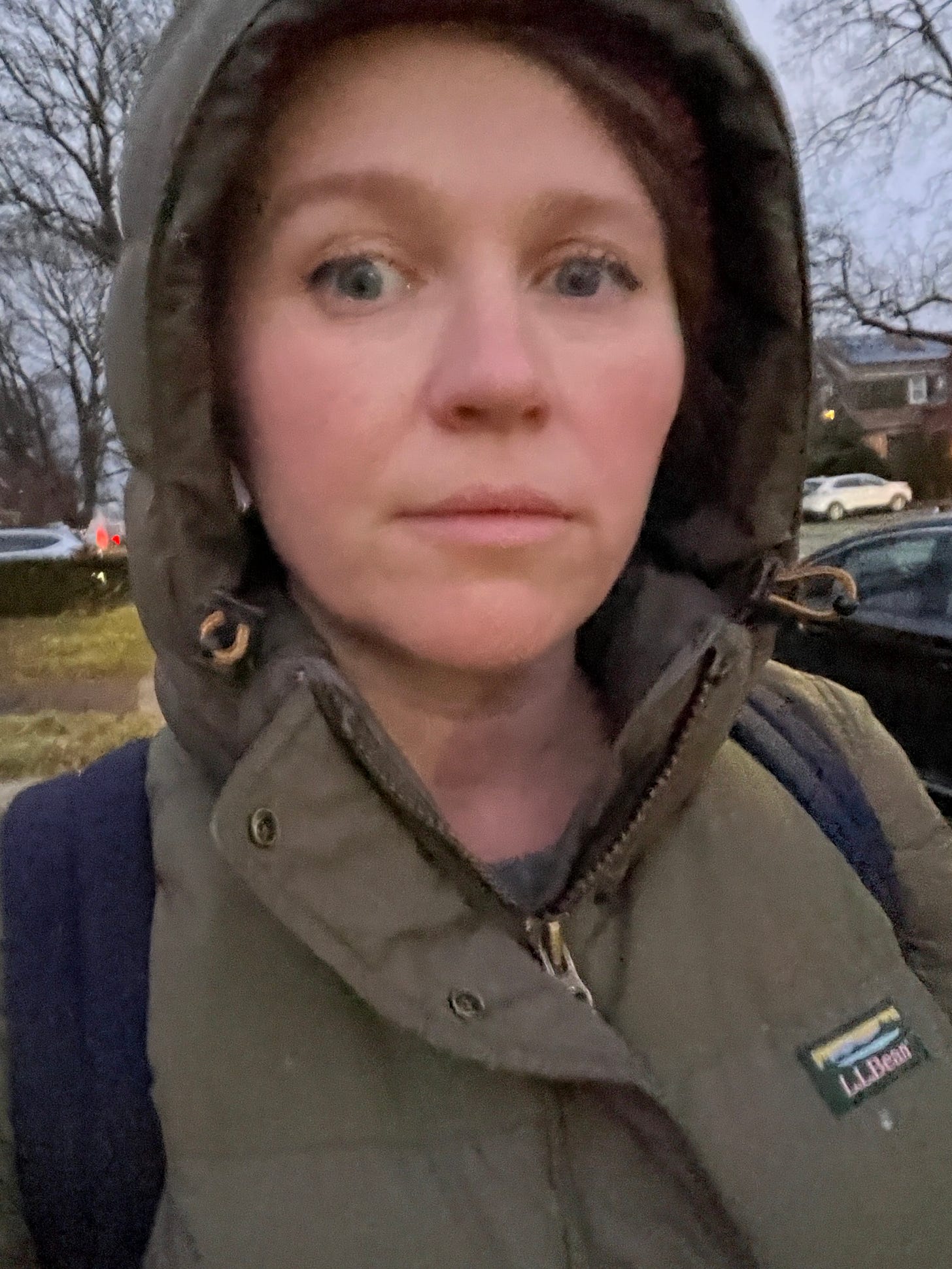

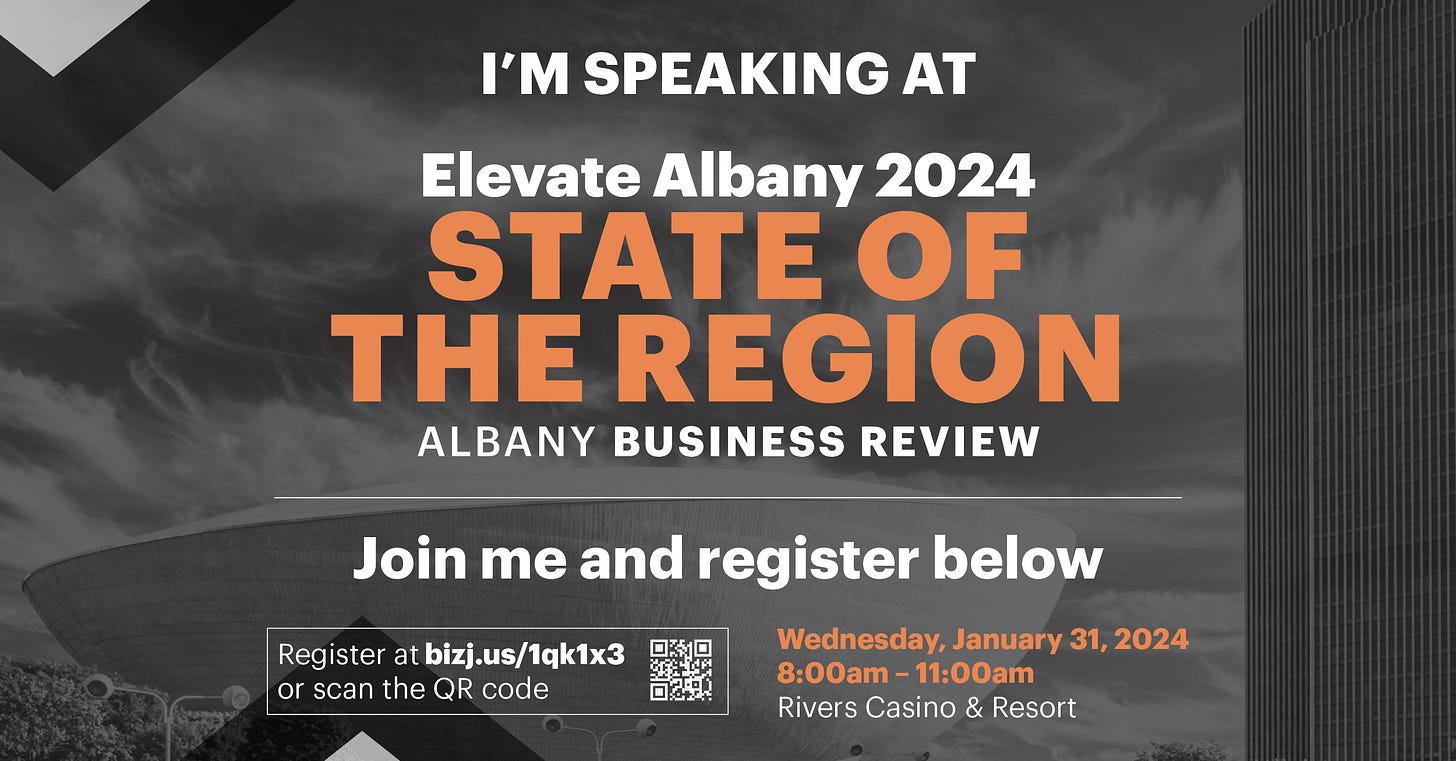
What a great piece! I enjoyed reading about your own evolving relationship with commuting.
In my book ("A Walking Life") I went into a lot of the subjects you mention here. One of the most under appreciated is how walking itself builds community. When you're taking that long walk home, you're helping to build social capital, strengthening the fabric of the community you live in, along with feeding your creativity and mental and physical health. (I had a section, too, on the mental-emotional isolation of commuting by car, how it might be exacerbating social divides through lack of interaction, and how physical exhausting it is -- when I had a long car commute, I was much more inclined to sit down and watch TV at the end of the day than to go for a walk or be social or even eat good food!)
Also, I can't remember if I mentioned this in that comment thread, but I think Putnam's statistic in Bowling Alone was specifically about car commuting. I'd have to look it up.
On point once again.